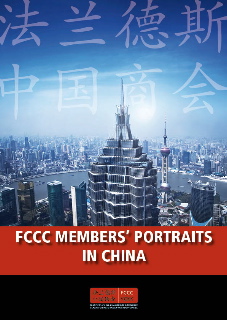I regularly receive Matthew’s weekly update. He is a strong competitor in sarcasm and always ready to demolish “the bad and the ugly”. See here part of his recent “rambling”. Or should we rather say, he is right? (I did not manage to find a suitable direct weblink for this)
I just watched a Chinese movie on Youku (“The Chopsticks Brothers”, with English subtitles). I must agree that having all this for free on the websites is not helping much the healthy development of media and culture in China. Why produce something that is stolen soon after? Chinese find this all “normal”. I’m just waiting for the day the West does the same with Chinese products, books, movies etc. Go ahead folks, steal the Pandas, Monkey King, Confucius and all.
When Will Foreigners Stop Investing in Chinese Pirates?
By Matthew Crabbe – www.accessasia.co.uk – Access Asia’s Weekly Update – 20th of January 2011
Probably never, or at least not until they stop making them money, which may well only be when they stop being thieves. There’s a lot of interest in China’s Internet retailing, China’s ‘YouTube’, net IPOs and all that kind of thing these days. We are shamelessly putting out a report about it in the hope that we can make some money selling a few copies before it ends up stolen by China’s Internet pirates. That’s right, there’s a very, very dark side to a lot of the recent listings of Chinese internet stocks that investors, supposedly smart analysts and the ever asleep-on-duty hack pack seem to be all ignoring – the underlying criminality of many of these supposedly ‘hot stocks’.
We all know who the criminal pirates that have recently listed (or who are looking to list soon) on global stock markets are, and it covers foreign investors and the foreign hack pack in no glory for allowing it to happen without raising even the slightest of objections. Let’s take for example Youku.
Victor Koo is the founder and CEO of Beijing-based Youku.com. “The company’s 161% rise after listing on the New York Stock Exchange was the biggest US IPO gain in five years,” according to Bloomberg. Yet Youku is a massive criminal organisation stealing intellectual property and copyrighted products from Hollywood and the world’s movie makers, TV programmers worldwide, musicians and authors. That’s what people watch on Youku, not students slapping each other but ripped off music videos, movies and TV. Youku knows this and yet Youku very wittingly allows all this stolen content to stay up there. Not only does it actively leave it up there, but Youku also actively sells advertising around its stolen content. And who are they selling advertising to for these prime interest pages of stolen content? The likes of KFC, L’Oreal, Unilever, which are just some of the company adverts you have to sit through before you can enjoy (for free) a ripped-off episode of Dr. Who or the latest Hollywood blockbuster.
Or let’s talk about Baidu. Baidu is a massively criminal organisation that would be stamped out anywhere that the rule of law is applied in equal measure to all. We have a special dislike of Baidu, as the company has consistently allowed pirated versions of our reports to be uploaded to its system and downloaded for free. The bastards at Baidu are simply thieves who come into our house and steal from us, depriving us of revenue, income and the ability to pay wages to our staff. The fact that some foreigners, who should know better, work for them is merely shame on them. After a lot of shouting, legal threats and publicity we can usually get them to take down illegally uploaded content. But they have to be threatened, and they have never shown any genuine concern about abusing, stealing and raping our IP. And then our reports reappear again, and the muppets at Baidu start prevaricating, again.
Or how about Tudou? Another site selling advertising and attracting investors capital based on providing stolen content from movie studios and TV companies. For those of you who think we’re lying, or these are just aberrations amongst lots of other content, try for yourself – click here [link not copied here] to watch the newly released film about Ian Dury and the Blockheads – fantastic, and completely stolen. Search around (in English or Chinese), it doesn’t matter, they’ve made it easy for you to enjoy the fruits of other people’s labour, investment and creativity without paying a cent. Oh, and don’t forget to enjoy the KFC or the shampoo ad before the movie!! Imagine KFC being discovered to have advertised on an illegal download site in America or England? The newspapers might be interested, no? But the foreign press in China? Not a squeak was heard!
So, can we now fully expect the Sicilian Mafia, the Columbian cartels, the Mexican drug lords, Somalian pirates and others to all list on America’s stock markets? All they need to do to get legit is set up a website full of illegal downloads, get a few shameless foreigners who’ve ended up in China as failed hacks or rock stars to front for them and away they go. Clearly if Tudou, Baidu or Youku were based in the USA or EU they would be raided and shut down immediately, their bosses prosecuted and never allowed anywhere near a stock market.
And the question remains, in among the reams and reams of glorying prose on these supposed champions of the Chinese internet, we have pirates backed by the government, being funded by foreign investors, egged on by investment bank analysts and left in the dark by the foreign press covering China. Likewise we have bankers (who say they don’t need regulating!) supporting and funding pirates (interestingly, we have found bankers reports on these ‘services’ too!!) and somehow we are less than surprised at this?
And finally, let’s just point out who the real losers are here. Not Hollywood or the BBC, though they are the victims of crime, but struggling Chinese content producers. It is TV programme makers and movie companies in China that are the those most ripped off by the likes of Tudou and Youku. These are the creative people who will be stymied by the pirates. These companies, and the foreign PR hacks and investment banker bloviators that promote them are the enemies of IP, creativity and progress.
Biz, Economy and More
More serious stuff on business in China
Bencham: ten years in China
BENCHAM stands for Benelux Chamber of Commerce in China and is the Chamber for Belgium, Netherlands and Luxembourg.
On 13 January Bencham organized its New Year’s cocktail in a rather unusual setting: Hard Rock Café (next to Landmark Towers and the Great Wall Sheraton Hotel), a place I had not been since the late nineties when I was based in Shanghai. Funny, it looked smaller to me, I guess because at that time is was relatively big. Now we have so many places it just looks like a bit more common.
There was the usual review of past activities and the speeches of the Chamber and the 3 countries involved:
– Nicolette Groot and Daniel Pauwaert for Bencham;
– H.E. Carlo Krieger (ambassador of Luxembourg), Didier Vanderhasselt (Minister Counsellor, representing the Belgian ambassador) and Siebe K. Schuur (Commercial Counsellor, representing the Dutch ambassador).
Bencham also introduced its revamped website: www.bencham.org and the details of the “Bencham X Ball” planned for 26 February 2011 at the Renaissance Beijing Capital Hotel, to celebrate the ten years.
In the late nineties I was myself the president in Shanghai of the Belgian Luxembourg Business Association (BLBA), what would later become the Bencham.
FCCC Members’ Portraits
See here part of the FCCC Newsletter. Gilbert is one of the “18 Flemish companies”.

FCCC Newsletter No 202, 13 December 2010
The Flanders-China Chamber of Commerce (FCCC) and VOKA Antwerp Chamber of Commerce organized a conference on “Doing business with China” on December 2, 2010 at the VOKA Antwerp Chamber of Commerce. On this occasion, two publications were launched:
– A practical guide on doing business with China
– FCCC Members’ Portraits in China
In the book “FCCC Members’ Portraits in China”, the Chamber presents the activities of 18 Flemish companies which have already made it in China. The book contains valuable information on how they tackled the highly competitive and difficult Chinese market. The man or woman on the ground in China also reveals tips and tricks about doing business in China, based on his or her experience in China. The managers who pulled of the success story of their companies in China also list their favorite book about China, there favorite restaurant in China and their favorite place in China, presenting the reader a lot of tips on books, restaurants and places.
Managers of member companies of the Flanders-China Chamber of Commerce based in China are doing an excellent job. Unfortunately, not much of their achievements filters through in the mainstream press. Some are responsible for the business of tens of wholly-owned companies and joint ventures. Others founded their own consultancy and have barely a few employees. Some have been in China for more than 20 years, have married Chinese women and have made the Middle Kingdom there second home. Others have done stints of three or four years in the country, coming from another assignment abroad and moving on to the next stage in their expatriate career. Diverse as those managers are, do they have anything in common? The interviews show that they are all very dedicated and hard working. They make it a point of honor to listen to their Chinese colleagues and employees. They don’t come to China with a fixed and arrogant attitude. On the contrary, they are flexible and quickly adapt to the Chinese business world. That is one of the main reasons why they are successful. Read the book and find out the details. As many of the managers in this book explain, doing business in China is not that different from doing business elsewhere. To be successful and make a profit you have to do your homework. “FCCC Members’ Portraits in China” shows how they did it.
The price of the China Guide is €50, including a complementary copy of FCCC Members’ Portraits. FCCC members can also receive a free copy of FCCC Members’ Portraits separately. The guide to doing business in China and the FCCC Members’ Portraits can be ordered via www.flanders-china.be.
High Level Economic and Trade Dialogue
This week Europe and China are discussing trade and related issues in Beijing.
On Monday 20 December I joined a working lunch with European Trade Commissioner Karel De Gucht. I was one of the four European Chamber delegates, along with European Chamber President de Boisséson, to convey concerns of the business community.
In the evening a reception was held in the Regent Hotel where more representatives of the Chamber expressed their views.
See here some pictures of the reception, with De Gucht, de Boisséson, Paul Ranjard, Olli Rehn (Commissioner of Economic and Monetary Affairs) and others addressing the Commissioner and the audience.
(OK, my camera was far from great in the very dark room… could use a more professional one!)
The contacts between the European Commission, European Delegation in Beijing and the Chamber demonstrate the smooth cooperation between all. Brussels is listening to the concerns of European business in China.
Government Procurement Agreement and China
I wrote the following paper that was widely circulated in September to the EU (Brussels & Beijing), Amcham and other interested parties.
Since then I received an exhaustive reply from the EU Delegation in Brussels (confidential). In short it says Brussels is aware about our concerns.
Are discussions around GPA missing the real issue?
28 August 2010.
by Gilbert Van Kerckhove
Gilbert is chairman of the Public Procurement Working Group of the EUCCC (European Chamber). The views expressed here are his own but have been submitted to th EUCCC.
Good news?
On 17 August 2010 China added 15 government departments under the State Council’s ministries into its latest offer to join the Government Procurement Agreement (GPA) of the World Trade Organization (WTO). Chinese and foreign experts point out that SOEs (state-owned enterprises) are not included.
This seems to indicate some misunderstanding on the definition of “government projects” and “government procurement” in China. Some even claim there is no regulation in place for SOE to this effect.
The current negotiations for China to join the GPA could prove to be pointless unless the real stumble block is removed – the duality of the Government Procurement Law (GPL) and the China Bidding Law (CBL). To fight for GPA only might be the wrong battle.
To read the full article, download the pdf document:
100828GPAcomments.pdf










